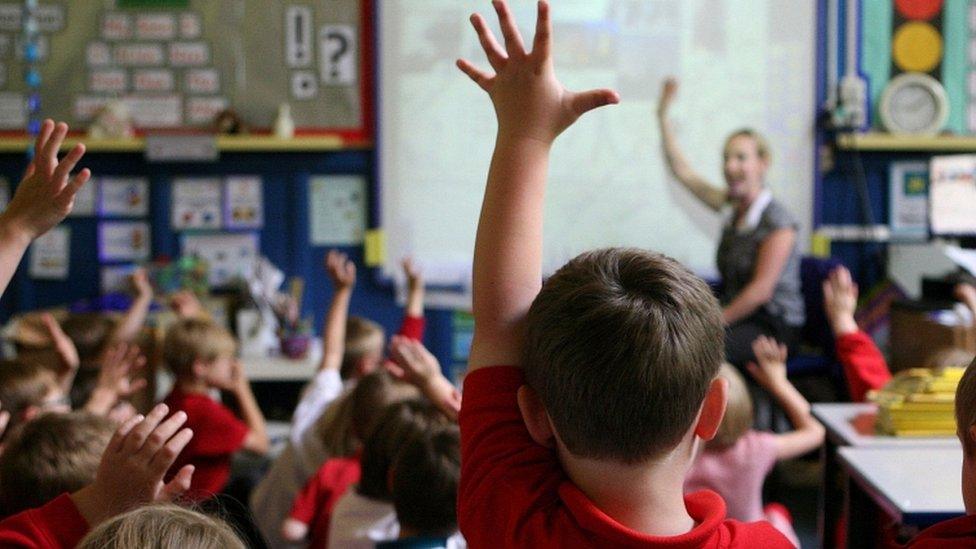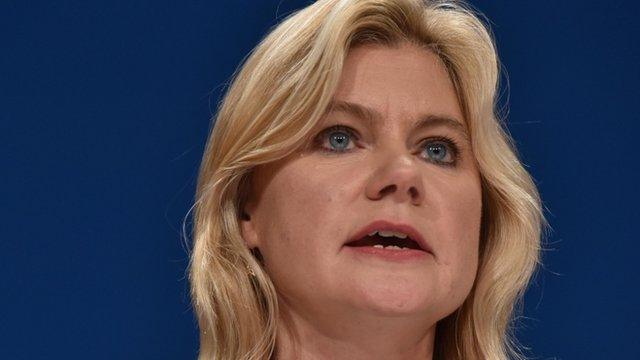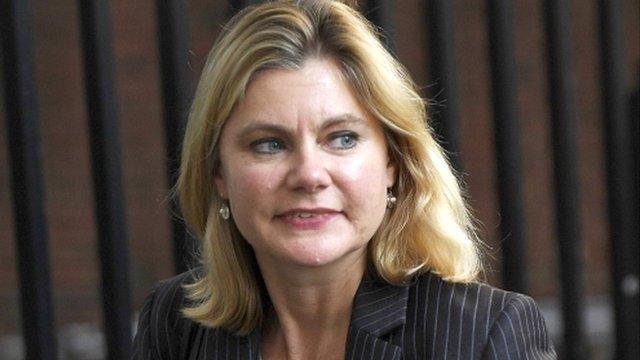'Research schools' for social mobility zones
- Published

A further six opportunity areas are being launched in social mobility 'cold spots'
Education Secretary Justine Greening is to announce a wave of "research schools" to raise standards in disadvantaged parts of England.
This will be part of an announcement of six more "opportunity areas", where efforts will be focused to improve social mobility.
There will now be 12 opportunity areas in total and each will have a research school.
These schools will encourage innovation and share evidence-based ideas.
The six new opportunity areas will be Bradford, Doncaster, Fenland and East Cambridgeshire, Hastings, Ipswich, and Stoke, identified as social mobility "cold spots".
Career opportunities
The total of 12 areas will share £72m, to improve the quality of education and to provide young people with the advice and skills needed for good jobs.
These will build partnerships between schools and colleges and local employers and careers services.

Justine Greening will announce six more opportunity areas
There will be a £3.5m scheme announced for each of the 12 areas to have a research school, to be set up with the Education Endowment Foundation.
These schools are intended to improve the quality of teaching and share ideas from the latest educational research.
Sir Steve Lancashire, is chief executive of REAch2, an academy trust with six schools in the Ipswich area.
He welcomed that "the government is explicitly recognising and prioritising areas of the country where social mobility is at risk of stagnation" and was looking forward to "seeing the difference that this concerted effort will make".
But the National Union of Teachers said that the amount being invested in opportunity areas was less than the amount that would be lost by a funding squeeze facing schools in those areas.
"The sad and bitter irony is that those areas will collectively lose £115m in real terms cuts under the current plans for school funding," said the union's leader, Kevin Courtney.
"I want to see more disadvantaged young people attending the very best universities, winning places on apprenticeships, entering the top professions, and progressing through the most rewarding careers," Ms Greening will say in a speech on social mobility.
"Opportunity areas will help local children get the best start in life, no matter what their background.
"Ensuring all children can access high-quality education at every stage is critical.
"We will focus not just on what we can do to help inside schools, but also create the opportunities outside school that will raise sights and broaden horizons for young people."
Prime Minister Theresa May has linked social mobility with plans for more grammar schools, but it is not expected that the education secretary will have any further details of how selection might be expanded.
Chris Keates, general secretary of the Nasuwt teachers' union, said the opportunity areas announcement had "the potential to make a difference".
But she warned that it was not enough to address the "cumulative impact of real terms' cuts to spending on education".
- Published4 October 2016
